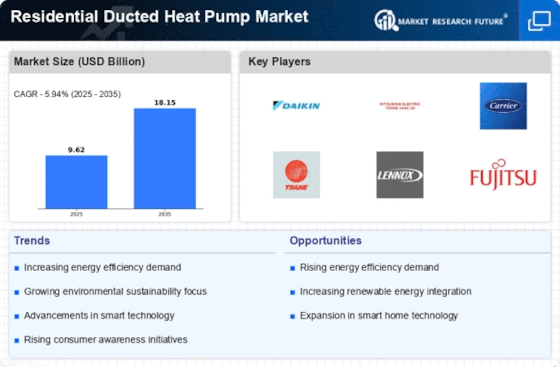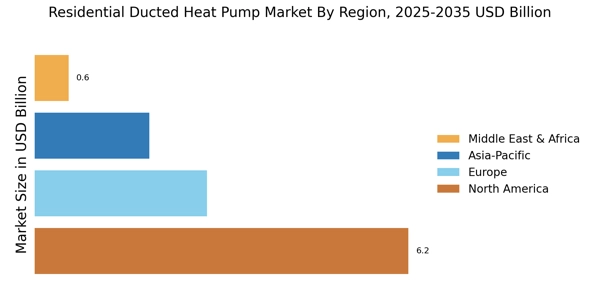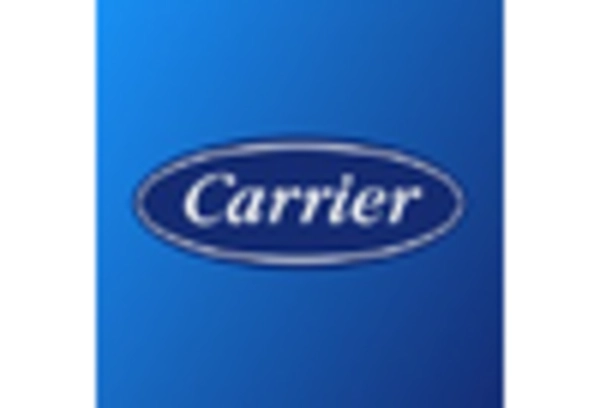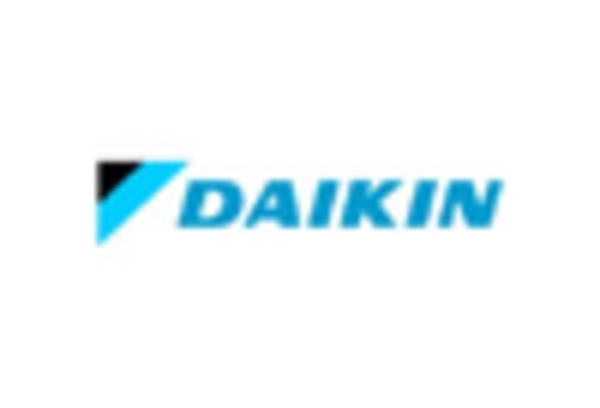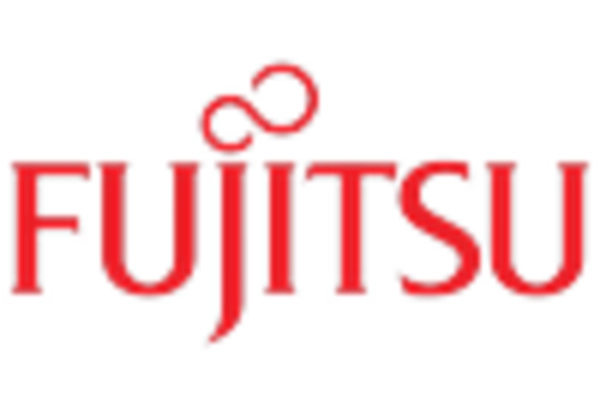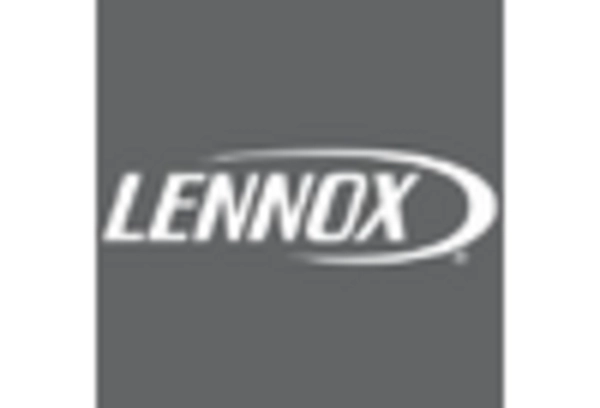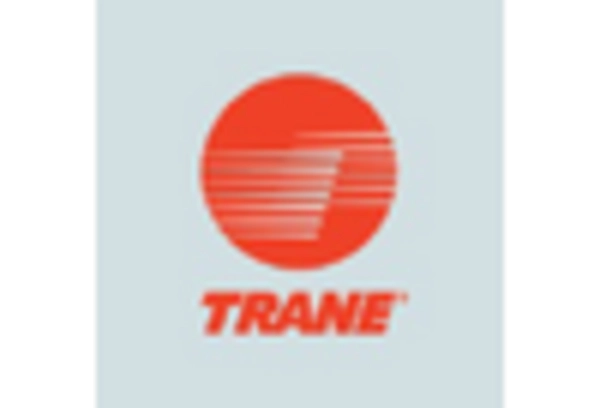Rising Energy Costs
Rising energy costs are significantly influencing the Residential Ducted Heat Pump Market. As energy prices continue to escalate, homeowners are increasingly seeking cost-effective heating solutions. Ducted heat pumps offer a viable alternative, providing efficient heating and cooling at lower operational costs compared to traditional systems. This shift is evident in market trends, where the demand for energy-efficient appliances is on the rise. According to recent data, the adoption of ducted heat pumps has been linked to a reduction in energy expenses, making them an attractive option for budget-conscious consumers. Consequently, the market is likely to experience growth as more individuals prioritize energy efficiency in their purchasing decisions.
Technological Innovations
Technological innovations play a crucial role in shaping the Residential Ducted Heat Pump Market. Advances in heat pump technology, such as variable speed compressors and smart thermostats, enhance the efficiency and performance of these systems. These innovations not only improve energy efficiency but also provide homeowners with greater control over their heating and cooling needs. The integration of smart technology allows for remote monitoring and management, appealing to the tech-savvy consumer. Market analysis suggests that as these technologies become more prevalent, they will likely drive further adoption of ducted heat pumps. The continuous evolution of technology in this sector may lead to increased competition among manufacturers, fostering a dynamic market environment.
Increased Consumer Awareness
Increased consumer awareness regarding environmental impacts and energy efficiency is driving the Residential Ducted Heat Pump Market. As individuals become more informed about the benefits of sustainable heating solutions, there is a noticeable shift towards adopting ducted heat pumps. These systems are recognized for their lower carbon footprint compared to conventional heating methods. Market data indicates that consumers are actively seeking products that align with their values, particularly those that contribute to energy conservation. This trend is likely to encourage manufacturers to enhance their marketing strategies, focusing on the eco-friendly attributes of ducted heat pumps. As awareness continues to grow, the market may see a corresponding increase in demand.
Energy Efficiency Regulations
The increasing implementation of energy efficiency regulations is a pivotal driver for the Residential Ducted Heat Pump Market. Governments are enacting stringent standards aimed at reducing energy consumption in residential buildings. For instance, regulations may mandate the use of high-efficiency heating systems, which can lead to a surge in demand for ducted heat pumps. These systems are designed to provide optimal heating and cooling while minimizing energy use, aligning with regulatory goals. As a result, manufacturers are innovating to meet these standards, potentially increasing market competition and driving technological advancements. The market is projected to grow as consumers seek compliant solutions that not only meet legal requirements but also reduce their energy bills.
Government Incentives and Rebates
Government incentives and rebates are emerging as a significant driver for the Residential Ducted Heat Pump Market. Many governments are offering financial incentives to encourage the adoption of energy-efficient heating systems. These programs can significantly reduce the upfront costs associated with purchasing and installing ducted heat pumps, making them more accessible to a broader range of consumers. Market data indicates that regions with robust incentive programs experience higher rates of heat pump installations. As these initiatives continue to expand, they are likely to stimulate market growth by motivating homeowners to invest in energy-efficient solutions. The potential for financial savings, combined with environmental benefits, positions ducted heat pumps as an attractive option for consumers.


